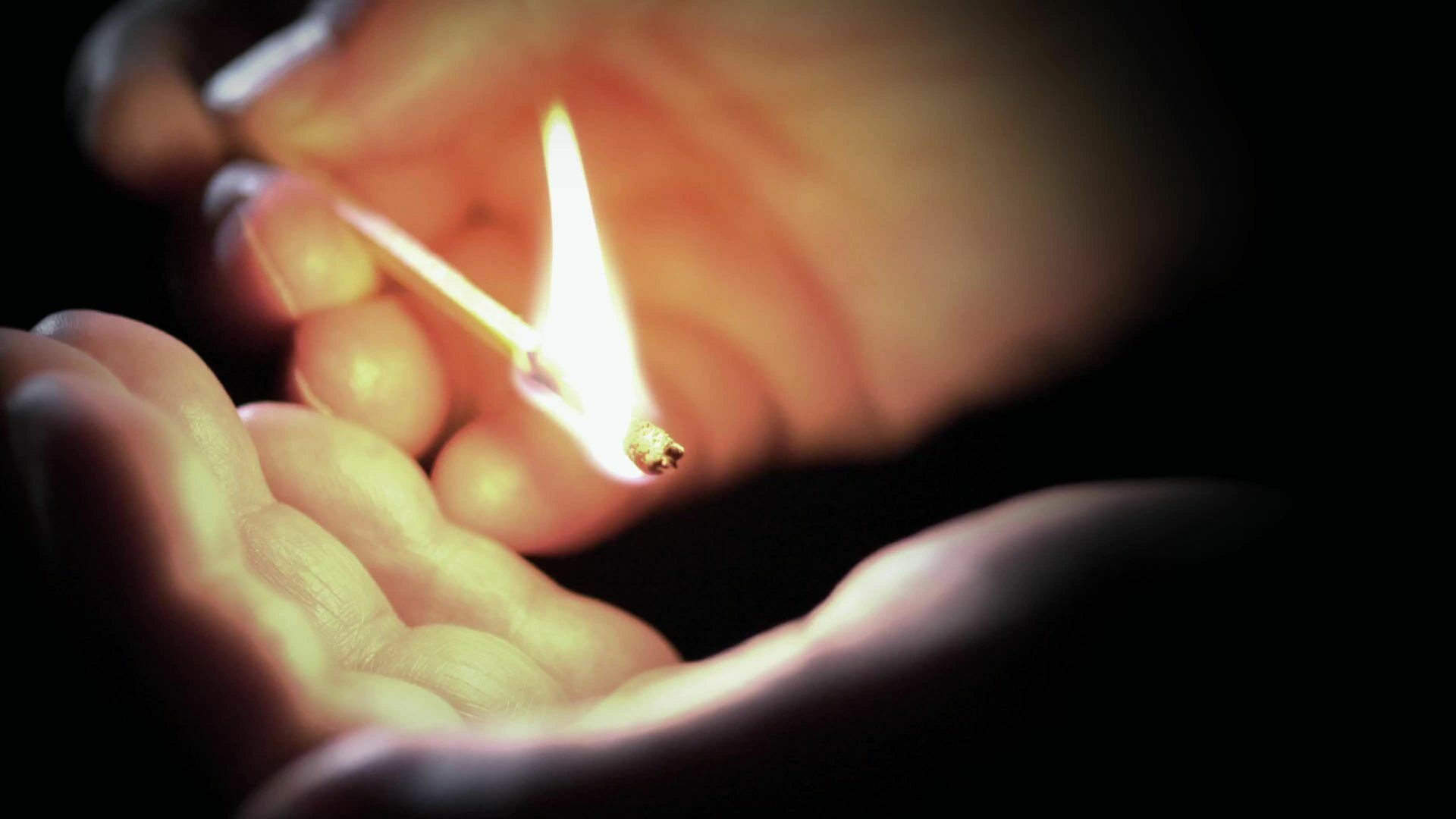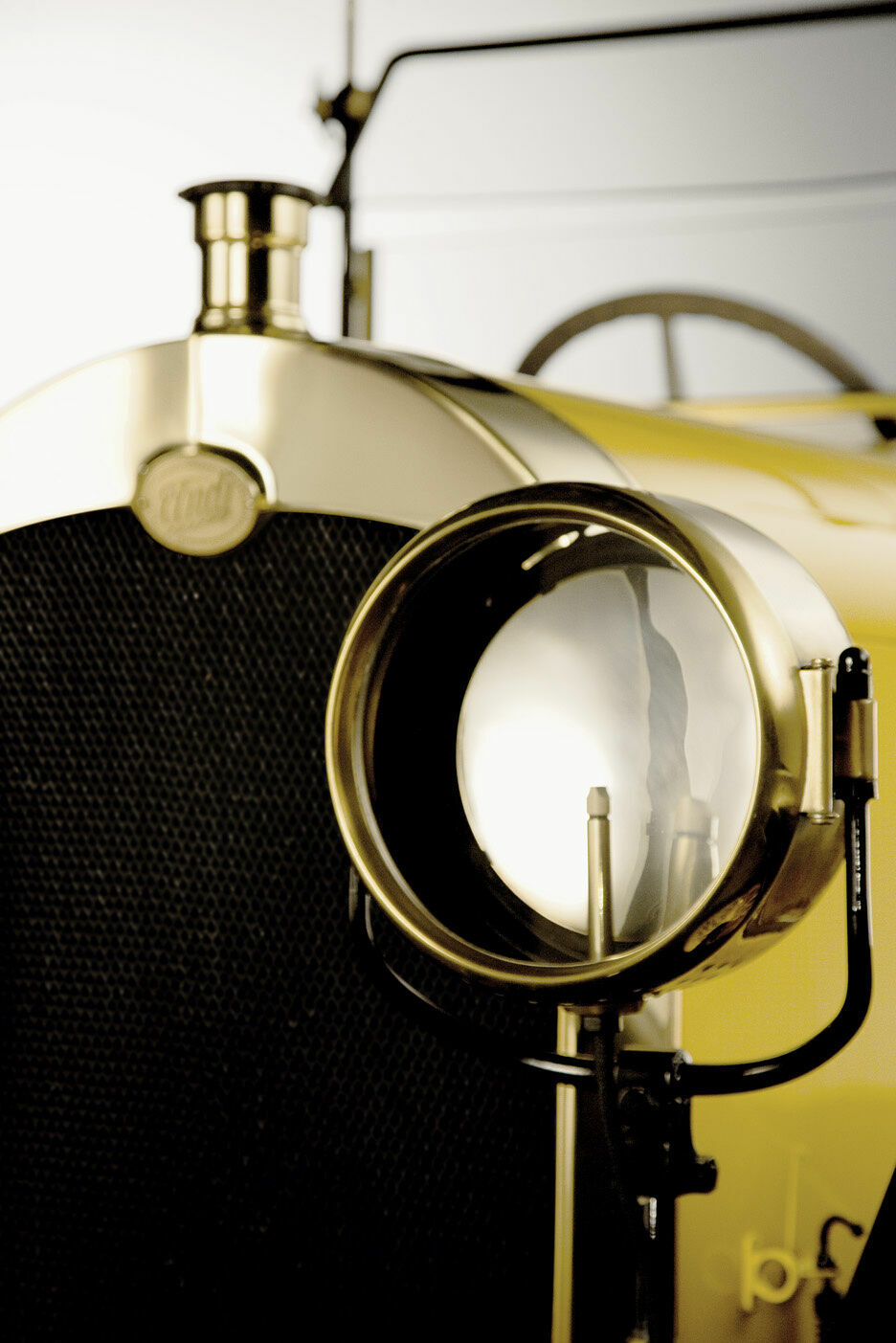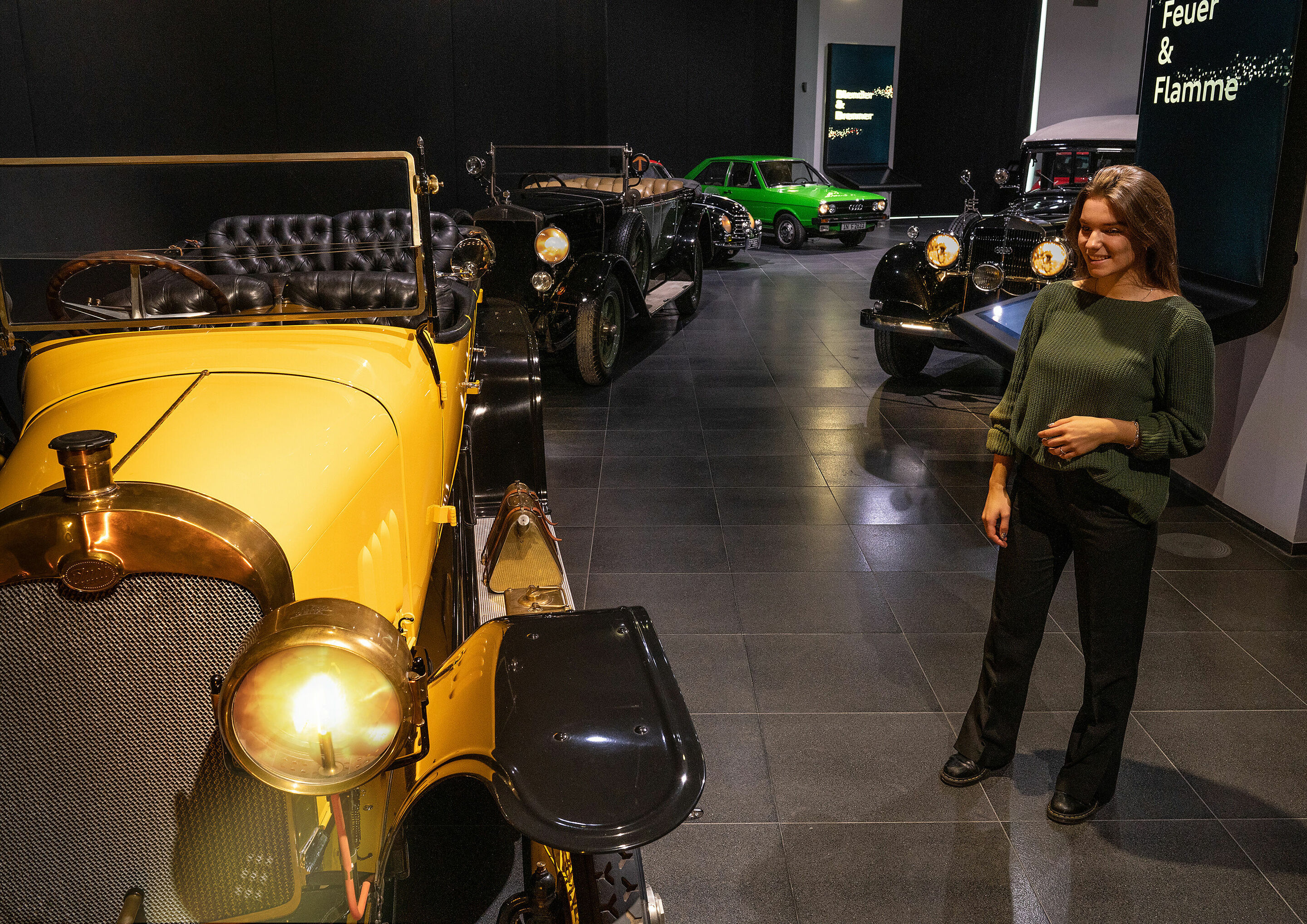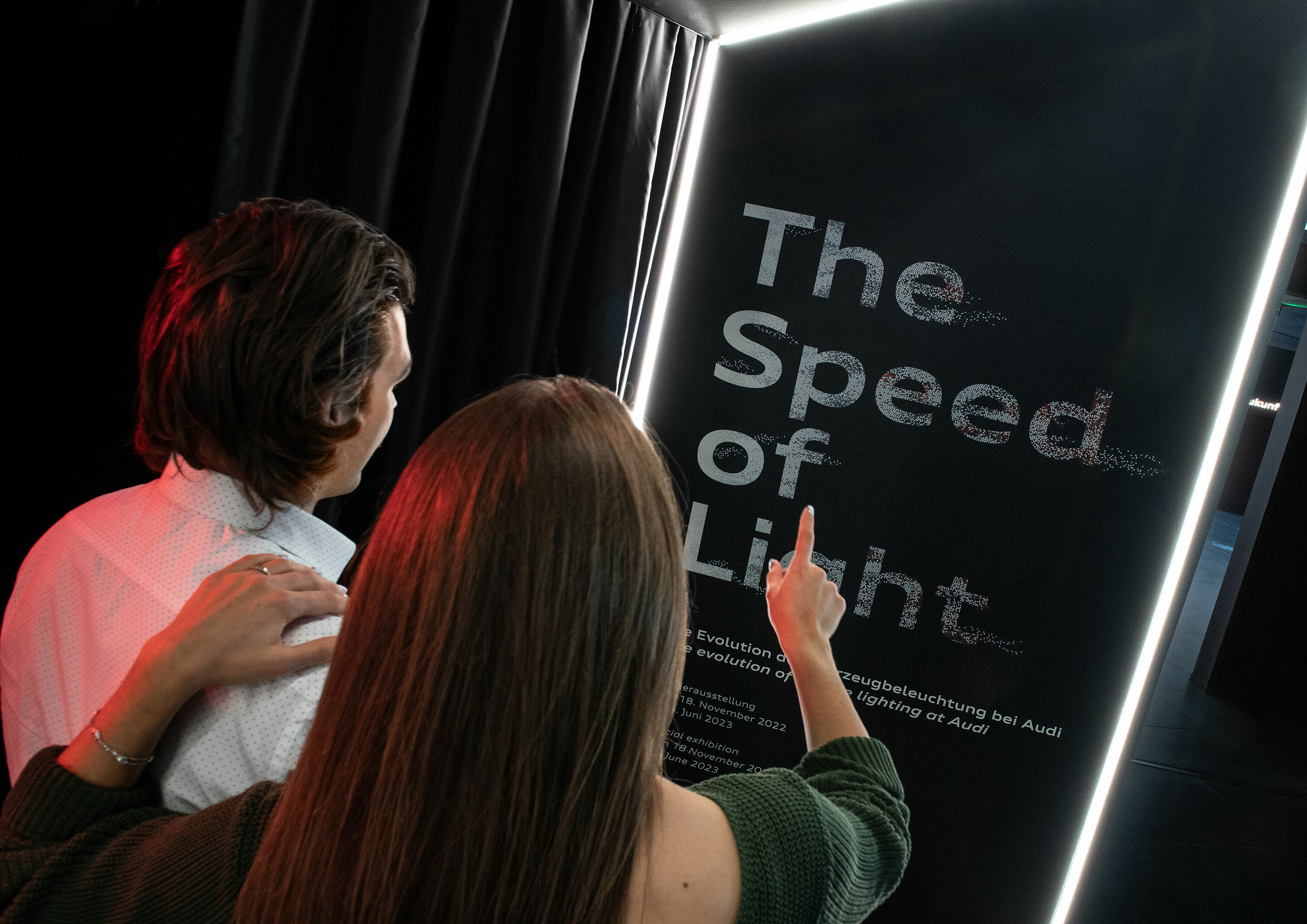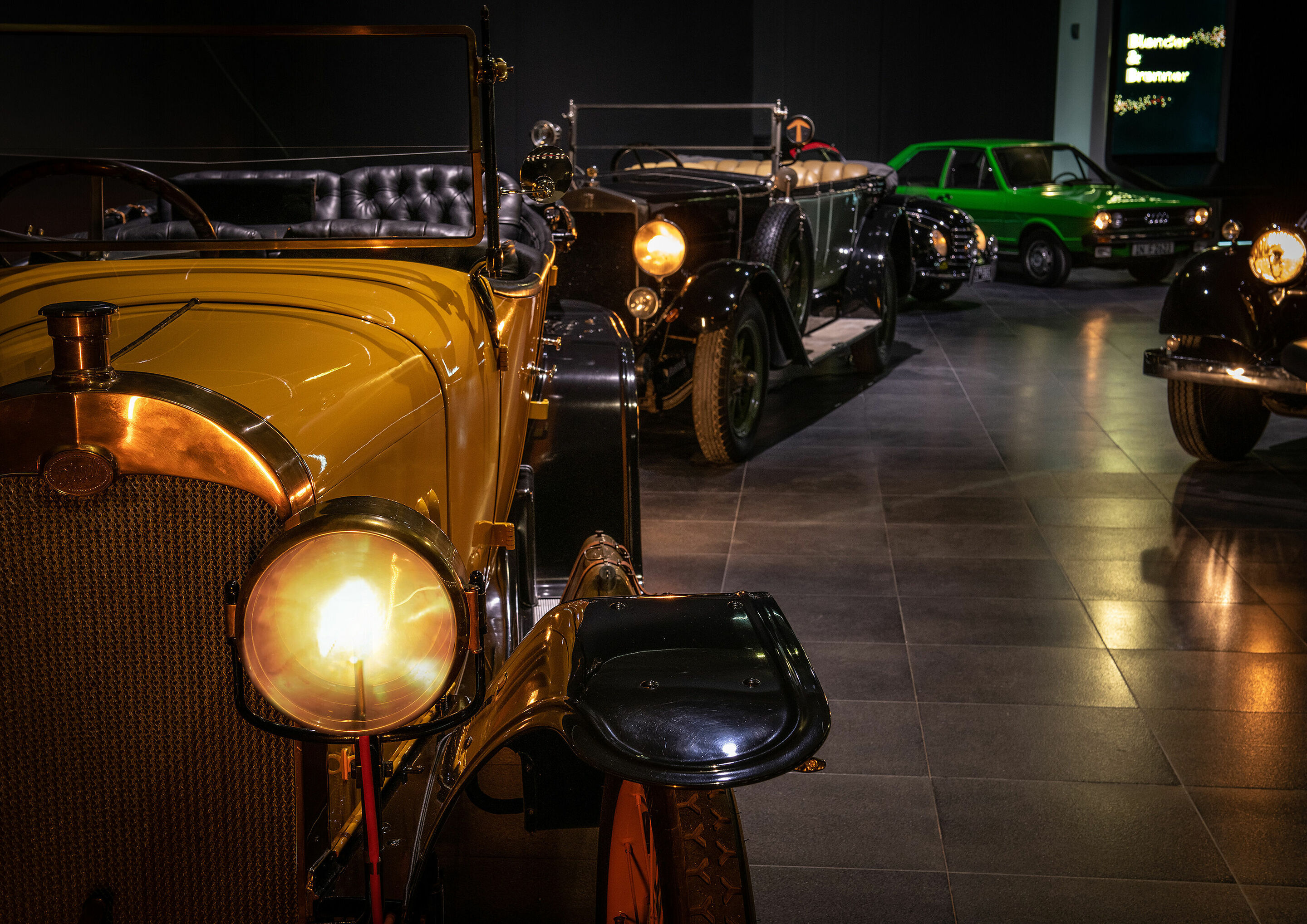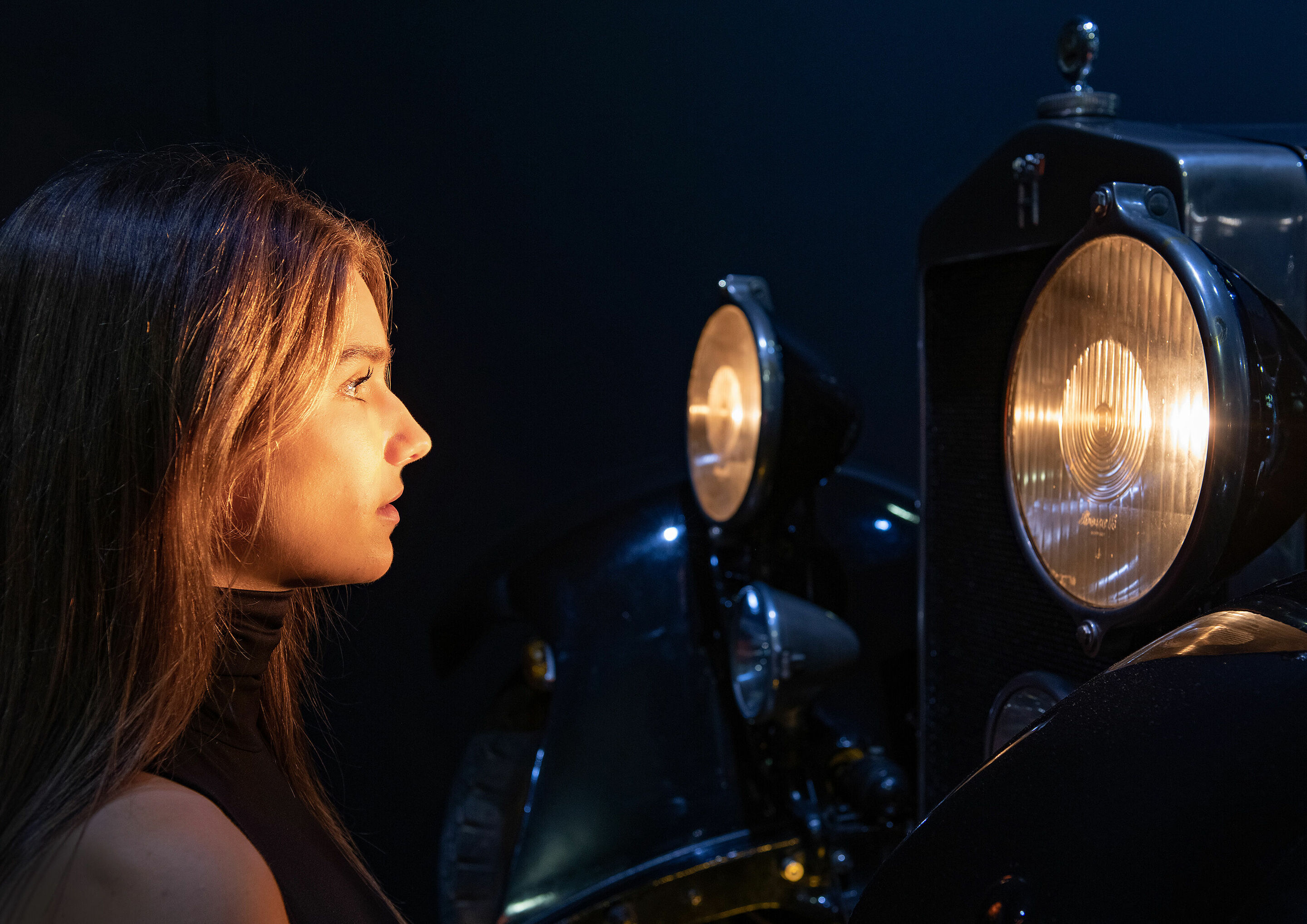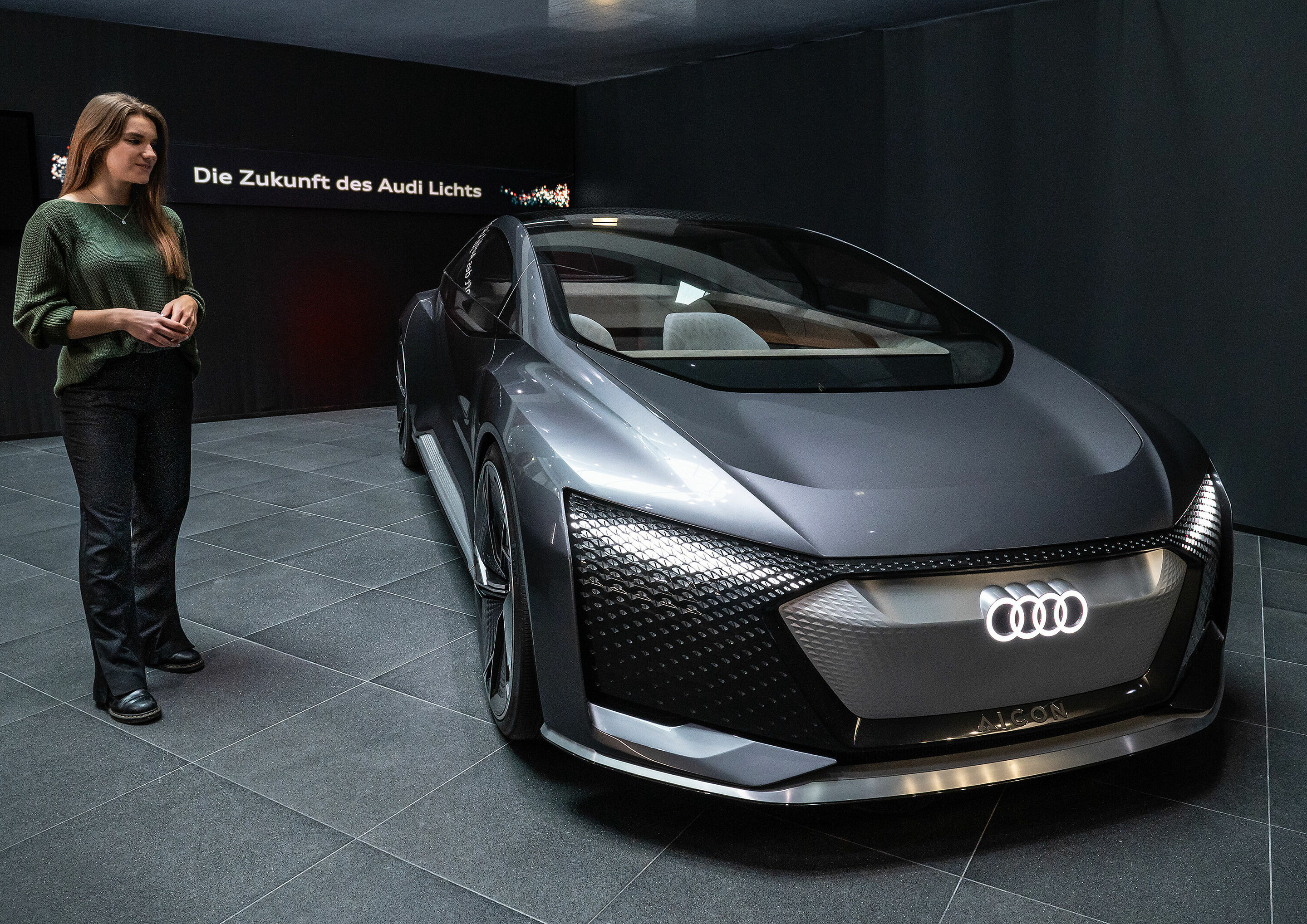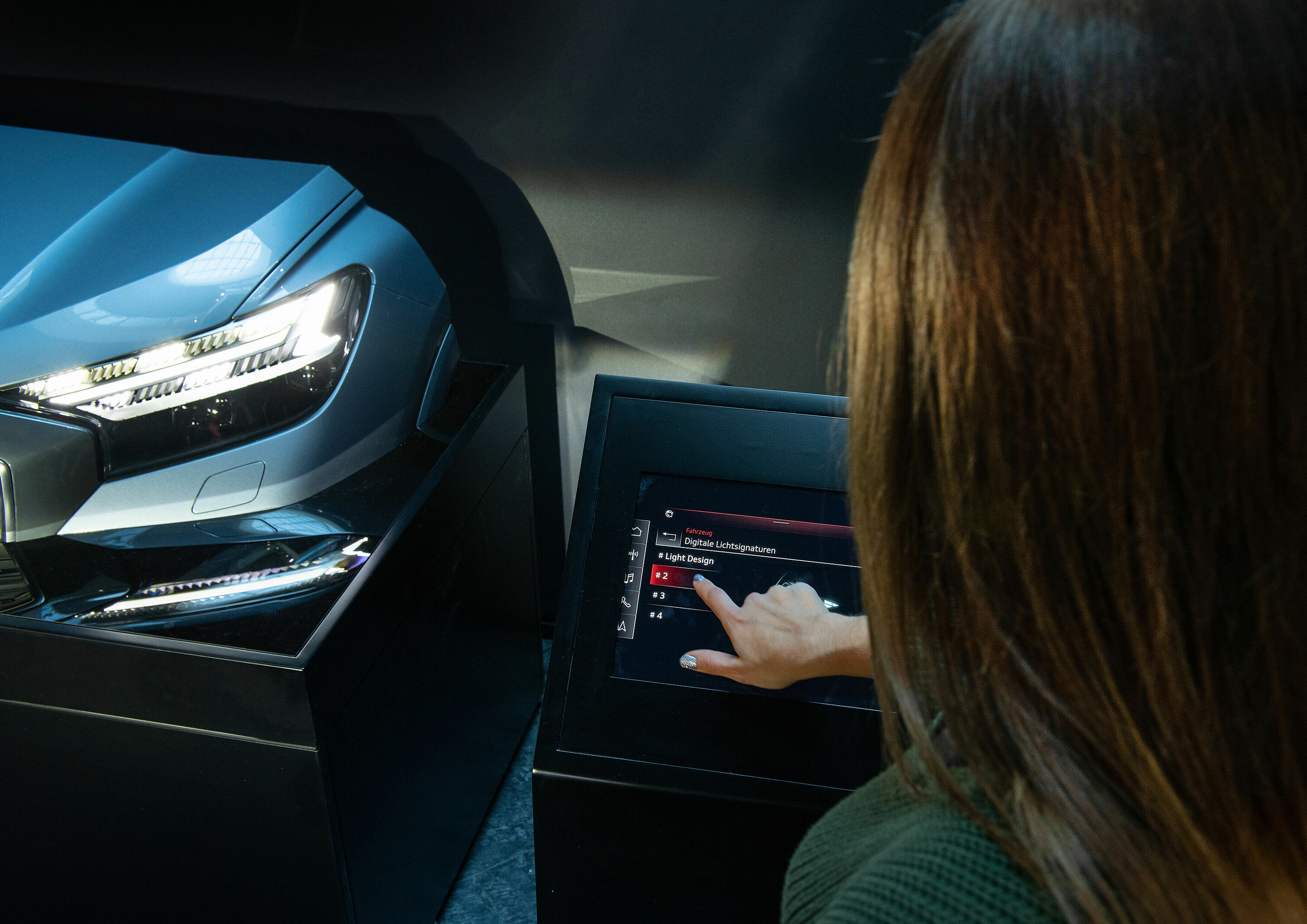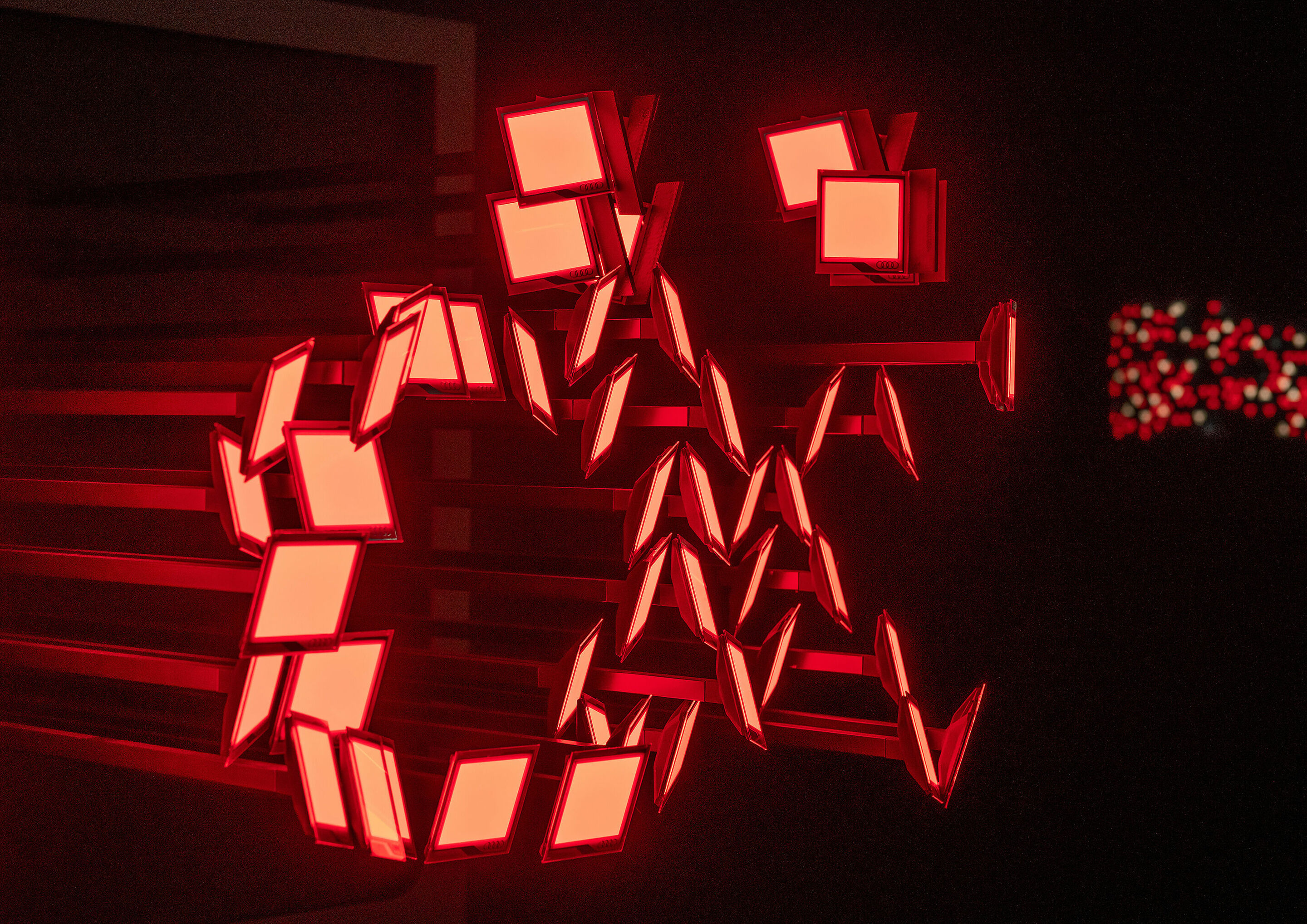Automotive history in the spotlight: Special exhibition “The Speed of Light” at the Audi museum mobile
- Ten vehicles and other exhibits illuminate the evolution of vehicle lighting
- Stephan Berlitz, Head of Lighting Development, AUDI AG: “Digitalization takes automotive lighting technology to a new dimension”
- New exhibitions launching November 18 at the museum – fascinating information on the exhibits is available via the Audi Tradition app from late November
The new special exhibition “The Speed of Light” at the Audi museum mobile in Ingolstadt is, for the first time, telling the whole story of lighting development through the rich product history of the brand with the four rings. The special exhibition looks back to the beginnings of vehicle lighting – when early automobiles still used actual fire for illumination. Ten vehicles serve to trace the various epochs in lighting technology, while other exhibits illustrate the functionality and the fascination of constantly evolving headlight and rear light technologies. “The Speed of Light” can be viewed at the Audi museum mobile from November 18, 2022, to June 4, 2023, and digitally on the Audi Tradition app.
“The early days of the automobile were long in the dark,” says Stefan Felber, curator of Audi Tradition’s new special exhibition. Felber explains: The headlights and rear lights that modern drivers now take almost for granted had a difficult start because, as cars were derived from carriages, they initially adopted the lighting technology of the day: candles in wind-sheltered enclosures, which were not much more than mere position lights. It was only with higher speeds and the advent of night driving that safe illumination of the road became increasingly important and soon a legal requirement. From candles to the later kerosene lamps, vehicle lighting began evolving rapidly. Carbide headlights served as a bridge technology until the implementation of electric lighting. The so-called “Bosch light” of 1913 was the first significant milestone towards modern headlights. The development of Bilux two-wire lamps in 1924 enabled, for the first time, high beams and low beams in one headlight.
But good car-powered road illumination has always been an evolving field. With the advent of halogen technology in the early 1970s, the intensive innovation in lighting technology at Audi picked up speed rapidly, leading to a new era in lighting in 1994, with the first use of xenon headlights in the Audi A8.
Right at the outset of the 21st century, Audi was the first manufacturer to exploit the full potential of light-emitting diodes: in 2004, LED daytime running lights went into series production in the A8 W12; in 2008, the company revolutionized the world of lighting with the first all-LED headlights in the high-performance Audi R8 sports car; and 2014 marked another global first when the company added lasers as additional high beams in series models. Audi continues to point the way to the future of lighting technology through the digitalization of light, with, for example, digital Matrix LED headlights and digital OLED rear lights.
Stephan Berlitz, Head of Lighting Development at Audi’s Technical Development unit, says: “Lighting technology continues to become increasingly important, with its outlook now changing. While safety remains the most important development aspect, in the future, car lights will be able to do more than give light. Through our digitalization efforts, Audi is pioneering a new dimension of automotive lighting technology. Lights are becoming a medium for external communication and interaction – in other words, an important means of communication with other road users.” In today’s automotive design, headlights and rear lights are now the perfect design element for car customization, for example, with digital light signatures. And the evolution of vehicle lighting is far from over. The new special exhibition illuminates the current trend of digitalization in lighting technology and offers a small yet exciting glimpse into the future.
Selected exhibits: from the Audi Type C to the Audi AI:CON
The oldest exhibit in “The Speed of Light” is an Audi Type C from 1919 with acetylene headlights; the 1925 Horch 10/50 PS already has electric lights. Also on display are a 1936 Horch 850 Cabriolet with Bilux high beams and a 1954 DKW F 91 with yellow fog lights. The twin headlights in the 1976 Audi 80 GTE already feature halogen technology, while the 1994 Audi S6 uses xenon lights. Xenon headlights were first used in the first-generation Audi A8 in 1994. The special exhibition also presents a 2014 Audi R8 LMX with laser high beams and a 2017 Audi A8 with HD Matrix LED headlights, including laser light as an additional high beam. The A8 was also the first model to implement dynamic lighting scenarios as a leaving home and coming home function. The new special exhibition at the Audi museum mobile rounds off with the Audi AI:CON concept car. Both the front and the rear act as fully digitized display surfaces consisting of hundreds of triangular pixel segments. The idea behind this is: Car lights of the future will outstrip yesteryear’s one-dimensional signal/warning functionality and be transformed into a versatile means of communication with the outside world, bringing added safety for drivers.
The exhibition is also available digitally on the Audi Tradition app
From late November onwards, the interested public can also visit “The Speed of Light” digitally on the Audi Tradition app. The app serves as a digital companion at the Audi museum mobile in Ingolstadt: Visitors receive in-depth content on the cars and exhibits on display in text form; for selected vehicles, there is an audio guide and even a 360-degree panoramic view. What’s more, the Audi Tradition app offers exciting content related to the new special exhibition from home or on the road – and beyond.
